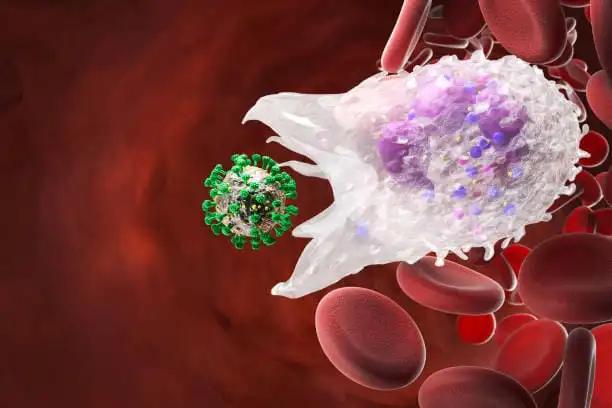KEY TAKEAWAYS
- The phase 3 ARAMIS trial (NCT02200614) evaluated the effect of darolutamide, an androgen receptor inhibitor, on non-metastatic castration-resistant prostate cancer (nmCRPC).
- The study assessed the impact of darolutamide on local symptom control, specifically urinary and bowel symptoms, using invasive procedures and quality of life (QoL) measures.
- Darolutamide significantly reduced the need for invasive procedures, delayed the worsening of QoL related to urinary and bowel symptoms, and showed a favorable safety profile.
- Greater PSA response with darolutamide was associated with lower incidences of urinary retention and dysuria incidences.
The phase 3 ARAMIS trial (NCT02200614) evaluated the impact of a unique structure of darolutamide, an androgen receptor inhibitor, on urinary and bowel symptoms in patients with non-metastatic castration-resistant prostate cancer (nmCRPC). The study included 955 patients randomized to receive darolutamide or placebo in a 2:1 ratio. Local symptom control was assessed through invasive procedures and quality-of-life measures. Post hoc analyses showed that darolutamide significantly delayed the worsening of QoL related to urinary and bowel symptoms, with lower incidences of urinary retention and dysuria. Additionally, there was a correlation between adverse events connected to bowel and urine symptoms and PSA responses. The study demonstrated the positive impact of darolutamide on symptom control and its favorable safety profile compared to placebo.
In the phase III ARAMIS trial, darolutamide treatment resulted in a lower percentage of patients requiring invasive procedures compared to placebo, with 4.7% versus 9.6% of patients, respectively. Additionally, the darolutamide group’s delay to the first invasive surgery was longer (hazard ratio 0.42, 95% confidence interval 0.28-0.62). Darolutamide also significantly delayed the deterioration of quality of life (QoL) related to total urinary and bowel symptoms (P < 0.01). This improvement was primarily driven by the individual symptoms of urinary frequency, associated pain, and interference with daily activities. The adverse urinary retention and dysuria events were less common in the darolutamide group. Patients who had a more significant prostate-specific antigen (PSA) response to darolutamide (≥90%, ≥50% and <90%, <50%) had lower incidences of urinary retention (2.2%, 4.2%, 5.1%) and dysuria (0.5%, 3.2%, 5.1%), respectively.
Overall, darolutamide positively impacted local disease recurrence and symptom control in patients with nmCRPC, delayed the time to deterioration in QoL related to urinary and bowel symptoms, and had a favorable safety profile with a similar incidence of urinary- and bowel-related adverse events compared to placebo.
Source: https://pubmed.ncbi.nlm.nih.gov/36087070/
Clinical Trial: https://clinicaltrials.gov/ct2/show/NCT02200614/
Shore ND, Stenzl A, Pieczonka C, Klaassen Z, Aronson WJ, Karsh L, Ryan CJ, Ortiz J, Srinivasan S, Mohamed AF, Verholen F. Impact of darolutamide on local symptoms: pre-planned and post hoc analyses of the ARAMIS trial. BJU Int. 2023 Apr;131(4):452-460. doi: 10.1111/bju.15887. Epub 2022 Sep 29. PMID: 36087070.



